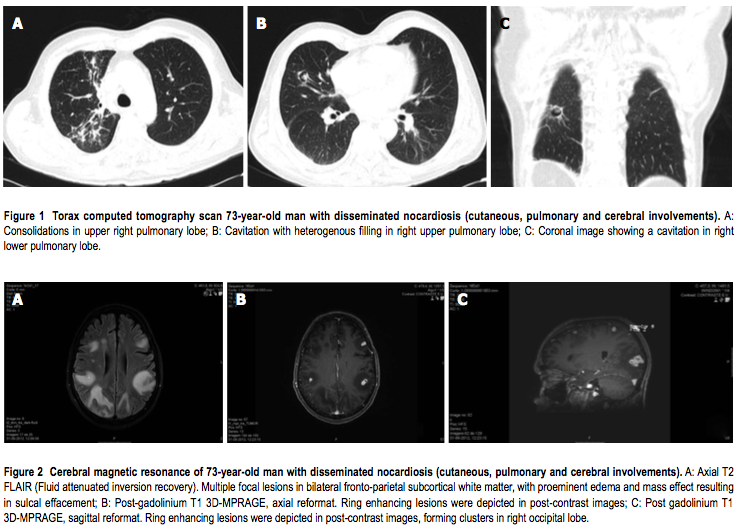INEB RECENT PUBLICATIONS:Nocardia infections among immunomodulated inflammatory bowel disease patients: a review
INEB researchers recently published an article in the World Journal of Gastrenterology, available since June 7th 2015. The article is entitled "Nocardia infections among immunomodulated inflammatory bowel disease patients: a review" and is authored by Cândida Abreu, Nuno Rocha-Pereira, António Sarmento and Fernando Magro.

Human nocardiosis, caused by Nocardia spp., is a rare granulomatous disease close related to immune dysfunctions. Clinically can occur as an acute lifethreatening disease. The infection was classically diagnosed in HIV infected persons, organ transplanted recipients and long term corticosteroid treated patients. Currently the widespread use of immunomodulators and immunossupressors in the treatment of inflammatory diseases changed this scenario. Our purpose is to review all published cases of nocardiosis in immunomodulated patients due to inflammatory diseases. Eleven cases of nocardiosis associated with antitumor necrosis factor (TNF) prescription were identified; 7 patients had inflammatory bowel disease (IBD), 4 had rheumatological conditions; nocardia infection presented as cutaneous involvement in 3 patients, lung disease in 4 patients, hepatic in one and disseminated disease in 3 patients. From the 10 cases described in IBD patients 7 were associated with antiTNF and 3 with steroids and azathioprine. Treatment for long periods tailored by the susceptibility of the isolated species whenever possible is essential. The safety of restarting immunomodulators or antiTNF after the disease or the value of prophylaxis with cotrimoxazole is still debated.


